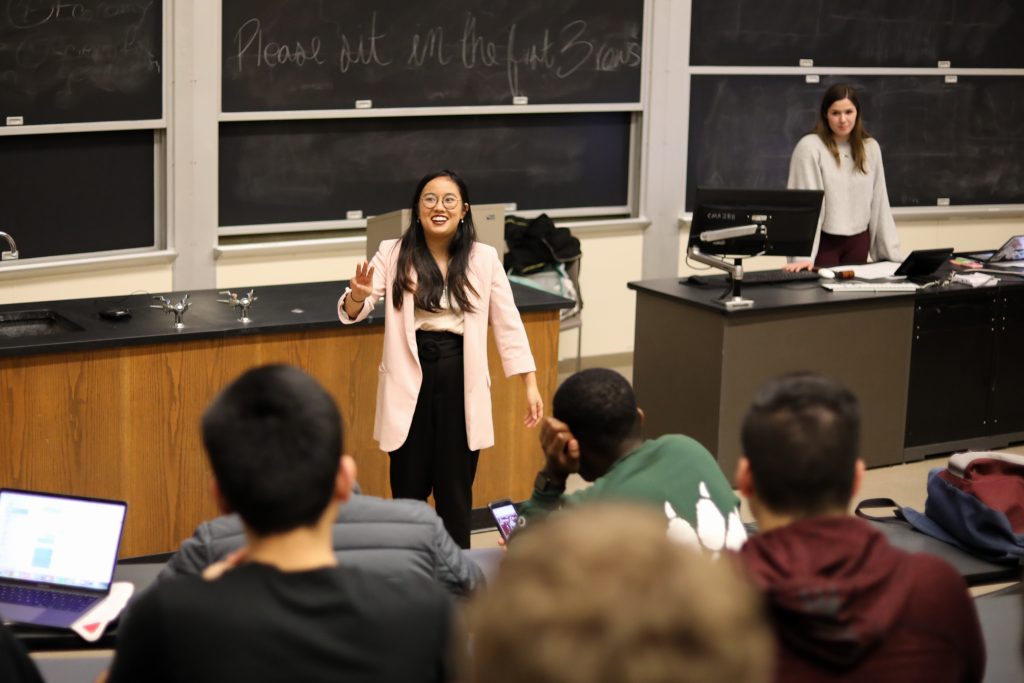For the entirety of fall semester, the Student Association (SA) failed to update the minutes and agendas of SA Congress meetings on their website, an action that violates its own governing documents and rules.
Emma Ross, SA Congress speaker and a junior double-majoring in political science and psychology, wrote in an email that the SA was experiencing technical issues with the website, which prevented regular upkeep of Congress minutes.
“We have had a great deal of technical difficulties with the website this year and everyone on our team has been working to get things uploaded without luck until over the break when we did an overhaul to add everything the e-board wanted uploaded,” Ross wrote. “Naturally, it took a bit of time before we were able to get the contents everyone wanted uploaded.”
According to SA management policies, minutes and agendas from Congress and its meetings must be posted online for public view by the third regular meeting from which they occurred. The minutes are required to include a beginning and end roll call, copies of the final actions taken and all public documentation submitted to Congress for its proceedings.
Anyone who requested the minutes or agendas would have been sent them, according to Ross. Matthew Johnson, assistant director of the SA, wrote in an email he was working to fix the server memory management issue.
“The challenge, and thus the reason it took so long for us to realize the extent of the issues, was that on the admin side it would publish some of our changes and make it look like we’d successfully saved data, but shortly thereafter the public facing website would sometimes revert back to its earlier content,” Johnson wrote. “There was no rhyme or reason as to when or how these glitches would happen, so no one caught it earlier in the semester.”
Johnson said he discovered the server’s inability to save or publish new data in December. Thereafter, a programmer identified the issue with the off-site server the SA website is hosted on, and by mid-January the major technical difficulties had been resolved. However, a Wayback Machine screenshot captured by Pipe Dream on Jan. 25 showed that Congress minutes and agendas from fall semester were still not accessible on the website. The website has since been updated and the minutes and agendas have been posted.
Johnson wrote that he was able to upload certain information last semester, but had trouble doing so.
“One clarification I would like to make, however, was that different sections of the website were successfully updated during the fall semester,” Johnson wrote. “For example, at the beginning of the semester I was able to update the information for SA Ink and the Child Protection Policy, functions I directly oversee in my role as assistant director. As I think back on it, I did have some difficulty getting these pages updated in late September [and] early October, but eventually got the changes to hold.”
Hunter Brink, an SA Congress member and a junior majoring in biochemistry, wrote in an email that minutes are recorded by a minute taker during the meetings, which are later reviewed by the entire body.
“Then I believe the vice speaker sends the minutes out to us the Congress to review and be approved during the next session,” Brink wrote. “I don’t know the logistics of when and how the website is updated, although last time I checked, it’s currently up to date.”
According to Ross, the management policies that require the SA to regularly update their minutes and agendas online can be amended by a Student Congress Representative who would propose a resolution that must be sponsored by at least two voting members of Congress.
“Once the bill is presented to Congress in new business the reps have until the next Congress meeting, two weeks later, to talk to their constituencies and prepare to make an informed vote,” Ross wrote. “When Congress convenes the resolution will be in old business and there will be opportunity to amend the resolution if necessary. After it is motioned to move in to a vote if there is a majority in favor the resolution passes. Any legislation is then checked by the Judicial Board to ensure that the changes are compliant with the Student Association Constitution.”



